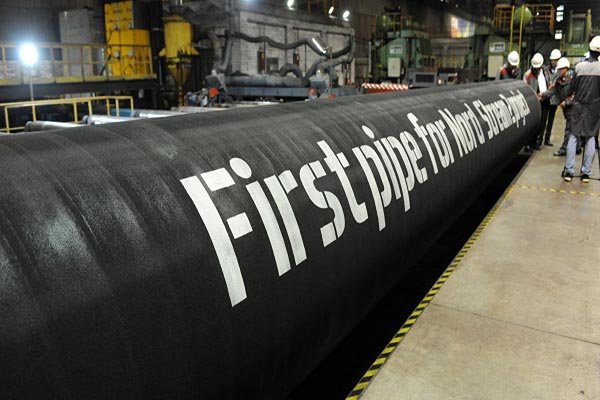Berlin and the EU have repeatedly expressed an interest in implementing the project.
Speaking at a news briefing on Wednesday, US State Department spokesman Heather Nauert said that the White House opposes the Nord Stream 2 energy project, which she said rides roughshod over European energy security.
"As many people know, we oppose the Nord Stream 2 project, the US government does. We believe that the Nord Stream 2 project would undermine Europe's overall energy security and stability. It would provide Russia another tool to pressure European countries, especially countries such as Ukraine," Nauert said.
Nauert did not rule out that the US may slap sanctions on companies involved in the construction of the gas pipeline.
"At the State Department, we have spent a lot of time speaking with our partners and allies overseas to explain to them the ramifications of CAATSA (the Countering America's Adversaries Through Sanctions Act). And how an individual or a company or a country can run afoul against CAATSA and fall into sanctions. We don't tend to comment on sanctions actions but we've been clear that firm steps against Russian energy export pipeline sector could — if they engage in that kind of business – they could expose themselves to sanctions under CAATSA," she added.
The remarks came almost a week after a bipartisan group of 39 US senators sent a letter to US Treasury Secretary Steven Mnuchin urging him to block the construction of Nord Stream 2.
The senators asked Mnuchin to use executive branch powers, including a provision in CAATSA to identify and sanction US and foreign entities supporting or expanding Russian energy giant Gazprom's "near-monopolist role in providing energy to US allies."
Last year, Russian Prime Minister Dmitry Medvedev said that the US aimed to bury Nord Stream 2 to promote its own suppliers, and that the project shouldn't be politicized.
"The most pragmatic is the position of the United States, which wants to bury this project with all sorts of legal decisions, instruments, sanctions, having an ambiguous impact on the European Union," he said.
Approved in the summer of 2017, Treasury cited the CAATSA law last week, while announcing new sanctions on 19 Russian individuals and five Russian entities.
CAATSA's approval was followed by German Foreign Minister Sigmar Gabriel, who said that Berlin regards new US sanctions against Russia as unacceptable and contradictory to German interests.Gabriel slammed Washington's policy of "aggressively binding US economic interests with issues of external policy," and stressed that Germany could not accept Washington's drive to "push Russian gas from the European market" in order to to sell its own gas.
The Nord Stream 2 project is a joint venture between Gazprom and five European companies, including France's Engie, Austria's OMV AG, Germany's Uniper and Wintershall, as well as Royal Dutch Shell.
The goal is to annually deliver 55 billion cubic meters of Russian natural gas to the European Union via the Baltic Sea. The project is slated to be wrapped up before the end of 2019.
SPUTNIK/MNA

























Your Comment